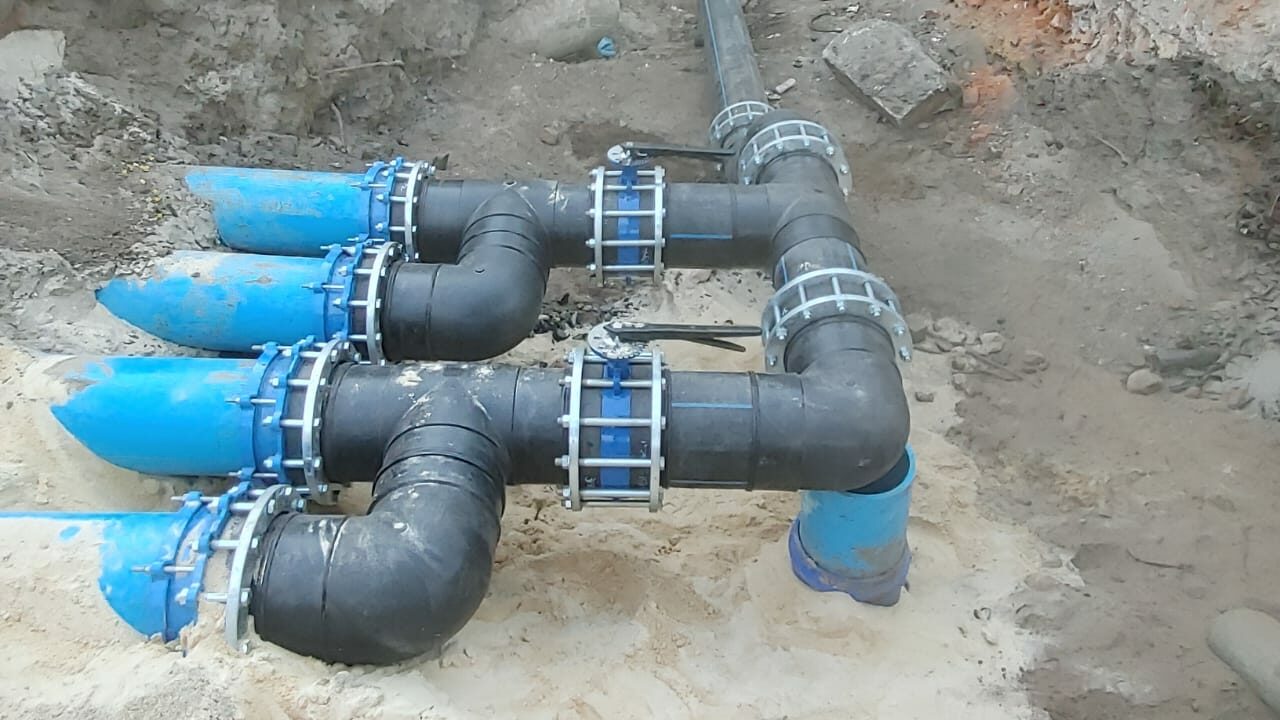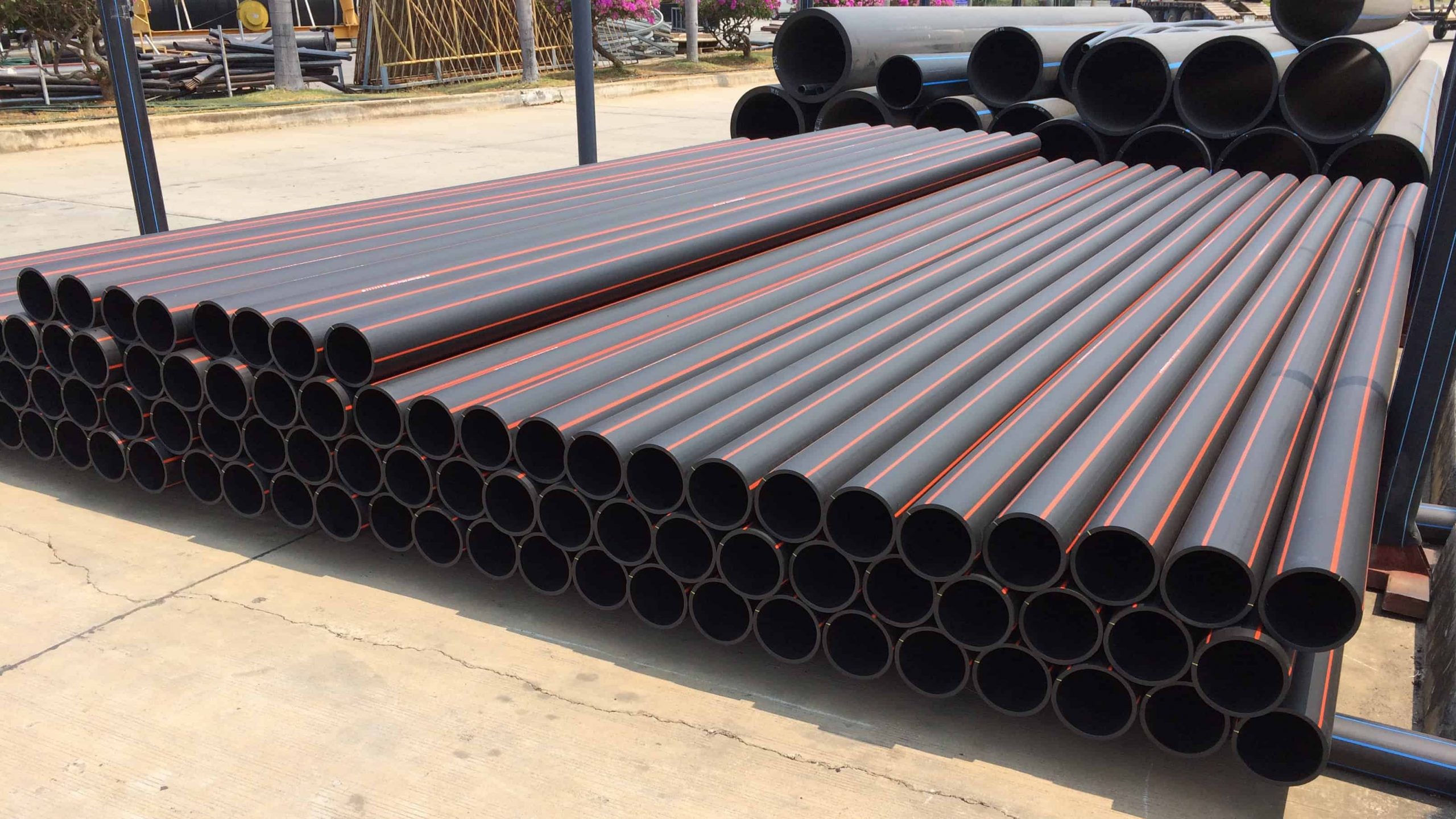Introduction:
The selection of piping material became crucial with the rising urbanization and a stronger need for efficient water infrastructure. In this blog, we will discuss how HDPE pipes in modern water supply systems play a vital role in water supply networks while outlining their benefits, applications, and contribution to sustainability.
Important Features of HDPE Pipes for Water Supply Systems
1. Durability and Longevity
Durability is one of the main reasons as to why HDPE pipes are used extensively in water supply systems. They are resistant to corrosion, chemical degradation, and environmental stress, giving them a normal lifespan of over 50 years.
- High Resistance to Environmental Stress: HDPE pipes are highly resistant to environmental stress cracking and impact damage. When it comes to HDPE pipe, it can serve more than 50 years in normal circumstances.
- Impact and Fatigue Resistance: HDPE pipes resist large impact loads without deformation, making them suitable for use in seismic zones. Moreover, the impact absorption characteristics of HDPE are effective in reducing the effects of ground movement on water pipelines.
2. Flexibility and Ease of Installation

HDPE pipes have high flexibility and can withstand ground movement, pressure fluctuation, and external force. This makes them especially well-suited for areas susceptible to earthquakes, landslides, or heavy loads. Their ability to adapt to rough terrains also results in easy implementation in such locales, reducing the chances of pipe breakage due to stress
- Flexural Properties: HDPE pipes can bend around obstacles, eliminating the necessity of additional joints because of their great flexibility. This degree of flexibility decreases the chances of leakage and cuts down on fittings and frequent failure points.
- Efficient Installation Methods: There are certain methods of installation that are efficient: HDPE pipes also use heat fusion methods to ensure a continuous flow during the fusion process and reduce the risk of joint failures compared with the mechanical connections used with other materials.
3. Leak-Free Joints and Water Conservation
The most popular joining method is heat fusion, which creates seamless, leak-free joints. Traditional metal or concrete pipes are connected with mechanical joints or seals, which can fail and degrade over time, resulting in leaks and a loss of water. HDPE Pipe Manufacturers in Rajkot provide leak-proof pipes that help conserve water, which is especially vital in water-scarce regions.
4. Resistance to Corrosion and Chemicals
The meaning of HDPE pipes is that they are not going to rust or corrode, and they will not decay when they come into contact with chemicals, which are often found in the water supply network.
- Corrosion Resistant: HDPE pipes are immune to corrosion from water and soil. HDPE’s resilience against chemical and environmental degradation prolongs the life of the pipes in extreme environments. Such resistance is especially advantageous in soil with aggressive conditions or water with high salinity.
- Chemical Compatibility: HDPE Pipes in Modern Water Supply Systems can be compatible with many chemicals, especially acids and bases. The strong chemical resistance of HDPE will help this material retain its mechanical properties and performance despite exposure to many industrial chemicals, allowing the use of HDPE in many applications going far beyond just the supply of water.
5. Smooth Interior Surface and Efficient Flow

HDPE pipes have a smooth internal surface, unlike metal or concrete pipes, which reduces the friction and improves the water flow efficiency.
Minimizing energy losses in the distribution system, which lowers pumping costs and improves overall system performance. The smooth surface inside also prevents scaling and sediment formation, allowing for consistent water quality over a longer period of time.
Applications of HDPE Pipes in Water Supply Systems
HDPE pipe is used in municipal applications for water supply in both potable and non-potable systems. also read about electrofusion fittings manufacturer
- Urban and Rural Water Distribution
HDPE pipes are used in municipal water supply systems for potable water distribution in residential, commercial, and industrial sectors. Because they can serve high-pressure water, they are a perfect addition to cities and towns.
It serves as a means of transportation of water over long distances in rural areas, where in remote communities, HDPE pipes are installed to transport clean water.
The agriculture sector heavily relies on irrigation systems to maximize water consumption and enhance crop production. HDPE is non-toxic and used in other types of irrigation systems, such as drip and sprinkler irrigation, because of its resistance to ultraviolet light, flexibility, and leak-tight joints.
HDPE pipes in modern water supply systems are low-maintenance, cost-effective, and long-lasting solutions for farmers and can be mounted either above or below the ground.
- Desalination and Coastal Water Supply
In core areas, desalination plants have been established to convert seawater into drinking water. These systems are built with HDPE pipes because of their corrosion resistance when exposed to saltwater and other harsh marine environments.
They are also used to construct submarine pipelines that carry water from offshore desalination stations to the continent.
- Emergency and Disaster Relief Water Supply
In the event of natural disasters like earthquakes, floods, or droughts, fast solutions in the provision of water supply are vital. HDPE pipe manufacturers in Rajkot are lightweight, and therefore, HDPE pipes can be rapidly deployed for emergency water distribution. Their durability guarantees their quality in both temporary and permanent relief systems.
Conclusion
HDPE pipes have transformed the landscape of modern water supply systems, providing a reliable, affordable, and eco-friendly means of water distribution. HDPE pipe manufacturers in Rajkot are superior to traditional piping materials due to their resistance to corrosion, flexibility, and leak-proof joints. Also Read About Understanding the Durability and Cost-Effectiveness of HDPE Pipes